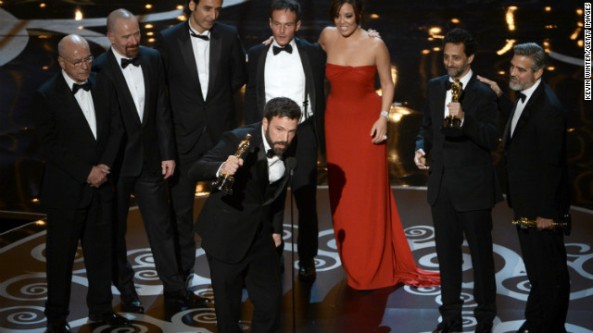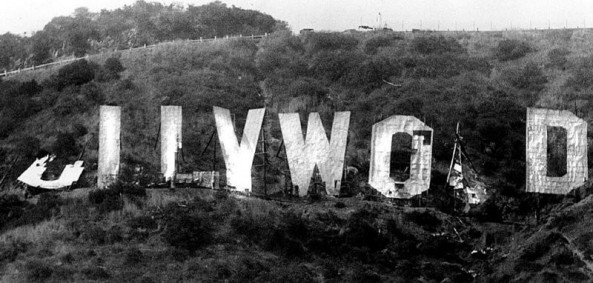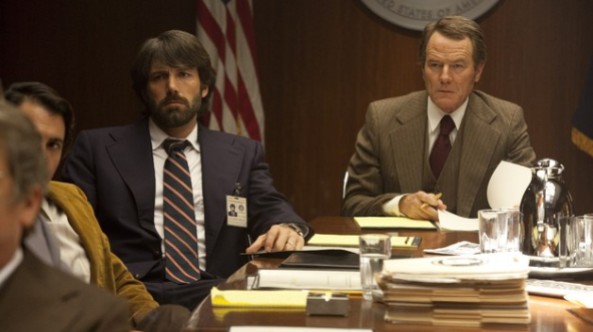
As it became increasingly certain that “Argo” would walk away with a Best Picture Oscar Sunday night, the articles claiming why “Argo” was not worthy of the movie industry’s top prize were a dime a dozen. Heaven forbid that in this Internet age we have something other than a contrarian opinion, or that we commit the even worse sin of agreeing with the Oscars.
Because a funny thing happens when something or someone becomes the assumed front-runner: people get begrudgingly accepting of whatever it will be. Everyone knew “Argo” and Anne Hathaway and Daniel Day-Lewis would win, but was anyone really happy about it until they finally did and gave the touching (or in Day-Lewis’s case hilarious) speech they were always meant to?
The Academy’s stamp of approval suggests to most that something is good and for the most part deserving, but the real gem is something else entirely. Yet somehow I doubt that every critic who writes about the Oscars for a living would be infinitely happier if “Holy Motors” was the indisputable winner, because a win for a movie like that wouldn’t say as much about this year in movies as “Argo” will.
No, my movie of the year didn’t even get nominated for Best Picture, but I’m prepared to say that no movie deserved to win the Oscar this year more than “Argo.”
For those wondering, “Argo” is the most likeable, accessible and enjoyable movie in a year full of great ones. To many, including myself months after I first saw it, this translated to “Argo” being light, easy to watch and an inconsequential popcorn movie; leave it to the bloggers to perpetuate a myth of a narrative.
The truth is that “Argo” is fantastic. Ben Affleck’s ambitious caper is streamlined, exciting, tense, insider funny and free of politics, but the film’s intricate nuance shows how talented a director Affleck has become just three films into his career.
The film’s many themes tie together seamlessly, but Affleck never allows these ideas to overwhelm the actual movie at its core.
It’s most transparently about the power of images, the influence TV screens, movies and photos have to incite an Iranian riot, stir the imagination and motivate someone to act. Think of all that Affleck does to suggest the overwhelming power of the image. One of the Iranian protesters does not become truly enraged until he sees dart boards on a photo of the Ayatollah. In a terrifically blunt speech to John Chambers (John Goodman) and Tony Mendez (Affleck), Lester Siegel (Alan Arkin) is curmudgeonly reluctant to agree to their hair-brain plan until he sees the Iranian news footage himself. A man is hung from a crane in the street not solely out of violence but to send a lasting message to the people. Canadian Ambassador Ken Taylor (Victor Garber) expected Mendez to have “more of a G-Man look.” Kathy Stafford’s (Kerry Bishe) life is put in danger when she takes an unauthorized photo of a bazaar shop owner. And the day is ultimately saved when the spirit of the movies fools the Iranian airport guards.

This naturally ties into “Argo’s” delicious affinity with the movies. Affleck has more than a few friends in Hollywood, and he’s one of the most perfectly poised directors working today to capture as deft of an insider mentality as he does here. Going beyond the rustic green coloring and giant glasses of the ‘70s, his knowledge of cinema history stretches back to the unfortunate genre baiting of the era, when anything with horses was a Western, America has gone to hell after just six months of John Wayne’s death and studios will bite on any junky “Star Wars” ripoff to come along. All amidst Arkin’s dry zingers, the Hollywood sign bleakly sits in disrepair. Affleck’s ability to juggle even these subtle changes of tone is a sign of the more complex balancing act of genres to come.
Yet on a more intellectual level, “Argo” is about bullshitting people. It’s so much about this act of lying, that Lester coyly begs the WGA director to do just that. The idea behind Mendez’s plan is that it’s a lie. The story is a lie, the “Argo” press event is a joke and a lie, and both the CIA directors and the six house guests have to lie to themselves to believe that this is a good idea.
Watch the introductory scene in which the eventual house guests debate whether they should evacuate the American embassy. They go through all their options and in an impulsive move decide that this bad idea to leave out the back is their only one. They’ll do the same again later when Mendez first arrives. It seems routine until you realize that the CIA has gone through the same decision making game. They discuss bad exfils operations before finally settling at the last minute on their only real plan, the studio option. “This is the best bad idea we have sir.”
All of this points to the meta nature of “Argo.” The movie is based on a true story, but it has become common knowledge that there was no chase down the runway in Iran. Canada had more of a role in the operation than the movie gives them credit for. There is not even a real Lester Siegel, but there is a John Chambers. The point is that a little bit of embellishing, or a little bit of bullshitting if you will, doesn’t matter one bit if it helps to tell a better story.
But answer me this: what makes “Argo” innovative? What does “Argo” do that no movie has ever done before?
All eight of the other nominees can arguably claim as much, even if not all the films work. “Beasts of the Southern Wild” and “Amour” feel infinitely original. “Lincoln” and “Zero Dark Thirty” are inexorably tied to their histories. “Life of Pi” dares to dream an entirely new way to see the movies. “Silver Linings Playbook” and “Django Unchained” challenge their genres with abrasive writing. Even “Les Miserables” tried their hand at singing live.
“Argo” on the other hand is just a well made studio movie. As Mendez might say to the housemates, “Argo’s” only saving grace is this little story. Most will appreciate Affleck’s impeccable craft. The Oscar winning editing is taut and evocative, jumping from the CIA headquarters to LA to Iran in seamless action movie fashion. The Alexandre Desplat score is a subdued part of Affleck’s overall creation, most notably when he removes it all together as Mendez tries to drive a van through a protesting crowd of Iranians. And the set dressing coupled with Rodrigo Prieto’s distinctively old-fashioned aesthetic and firm hand behind the camera give “Argo” just the right feel.
How can a movie this complex and well-made be “just a movie?” It’s because “Argo” dares to be a movie.
Affleck is not an a-political director. His last two films “Gone Baby Gone” and “The Town” were deeply rooted in Affleck’s Boston home and the problems that befall it, but “Argo” is notably without those geographical or political suggestions. He subtracts the polarizing aspects, minimizes the message and amplifies the tension to create what is undoubtedly a new classic.
Calling it that might be scary to a lot of critics. Yet I would imagine if “Rocky” were winning Best Picture today, it would likely find the same intense vitriol and apathy “Argo” is seeing now. Affleck’s film could rank alongside “Jaws” or “Raiders of the Lost Ark” as wonderfully ambitious works of entertainment, and like Spielberg, Affleck could mature over time to be one of America’s next great directors.
I won’t complain too much if you wanted something other than “Argo” to win Best Picture. Maybe in the grand scheme of things, it’s a bad movie, one that fails to change the game and doesn’t actually do anything new. But this is the best bad movie we have sir… by far.


I couldn’t agree more with everything you said about Argo, and I like how you credited the other films nominated for what made them special. Argo was well-written, powerfully executed and (like you said) all revolving around a giant lie–it’s brilliant. It doesn’t try too hard, and embellishes enough to keep the audience engaged without grossly warping the facts. Good analysis!